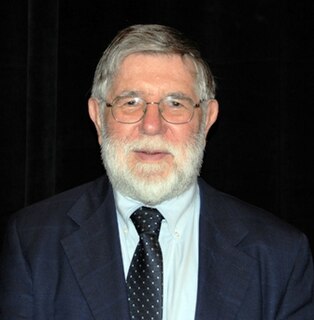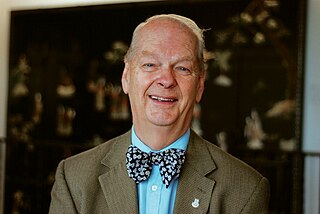Related Research Articles
Professional certification, trade certification, or professional designation, often called simply certification or qualification, is a designation earned by a person to assure qualification to perform a job or task. Not all certifications that use post-nominal letters are an acknowledgement of educational achievement, or an agency appointed to safeguard the public interest.
IAP may refer to:
The Royal Academies for Science and the Arts of Belgium (RASAB) is an non-governmental association which promotes and organises science and the arts in Belgium by coordinating the national and international activities of its constituent academies such as the National Scientific Committees and the representation of Belgium in international scientific organisations.

The Indian Academy of Pediatrics is the association of Indian pediatricians. It was established in 1963, in Mumbai, India and claims to have 23,000 members, as of the year 2013 The head office of IAP is in Mumbai while Delhi is the seat of its official publication – Indian Pediatrics, a MEDLINE indexed medical journal. It also publishes another medical journal called Indian Journal of Practical Pediatrics from Chennai.
The Institut d'Astrophysique de Paris is a research institute in Paris, France. The Institute is part of the Université Pierre et Marie Curie and is associated with the CNRS Centre national de la recherche scientifique. It is located at 98bis, Boulevard Arago Il in the 14th arrondissement of Paris, adjacent to the Paris Observatory.

Ye Duzheng was a Chinese meteorologist and academician at the Chinese Academy of Sciences.
The International Association of Prosecutors (IAP) is a global non-governmental organisation of prosecutors, established by the United Nations in 1995, Vienna. It has 183 organizational members from 177 countries, and individual members.
Gastrointestinal pathology is the subspecialty of surgical pathology which deals with the diagnosis and characterization of neoplastic and non-neoplastic diseases of the digestive tract and accessory organs, such as the pancreas and liver.

X-linked inhibitor of apoptosis protein (XIAP), also known as inhibitor of apoptosis protein 3 (IAP3) and baculoviral IAP repeat-containing protein 4 (BIRC4), is a protein that stops apoptotic cell death. In humans, this protein (XIAP) is produced by a gene named XIAP gene located on the X chromosome.
IAPS may refer to:

The Islamic Arts Museum Malaysia is a museum in Kuala Lumpur, Malaysia. It was officially opened on 12 December 1998. The museum is the largest museum of Islamic arts in South East Asia with more than seven thousands artifacts from the Islamic world.
The InterAcademy Partnership (IAP) is a global network consisting of over 140 national and regional member academies of science, engineering, and medicine. It was founded in 1993 as the InterAcademy Panel (IAP). In 2000, the IAP founded the InterAcademy Council (IAC) and the InterAcademy Medical Panel (IAMP). The partnership was established in 2016 when it merged the three inter-related networks into IAP for Health, IAP for Science, and IAP for Policy.
Allied Academies is a reportedly fraudulent corporation chartered under the laws of North Carolina. Its postal address is in London, United Kingdom. It presents itself as an association of scholars, with supporting and encouraging research and the sharing and exchange of knowledge as its stated aims. The organization consists of 30 affiliate academies, which provide awards to academics and publish academic journals both online and in hard copy for members. Since 2015 the organization has been listed on Jeffrey Beall's list of "potential, possible, or probable predatory scholarly open-access publishers". It is in a partnership with OMICS Publishing Group which uses its website and logo. In 2018, OMICS owner Srinubabu Gedela declared that he had informed the Nevada court that Allied Academies was a subsidiary of OMICS International. During a conference in 2018, they falsely listed a prominent chemist among its organizing committee who had not agreed to this and was not affiliated with Allied Academies.

Nudiviruses are a family of animal viruses that constitute the family Nudiviridae. Insects and marine crustaceans serve as natural hosts. There are 11 species in this family, assigned to 4 genera. Diseases associated with this family include: death in larvae, chronic disease in adults.

Juan Rosai was an Italian-born American physician who contributed to clinical research and education in the specialty of surgical pathology. He was the principal author and editor of a major textbook in that field, and he characterized novel medical conditions such as Rosai-Dorfman disease and the desmoplastic small round cell tumor. Rosai is also well-known because of his role as teacher, mentor and consultant to many American and international surgical pathologists.

Mohamed H. A. Hassan is the co-chair of IAP, the Global Network of Science Academies, and chairman of the Council of the United Nations University (UNU). He also serves on a number of Boards of international organizations worldwide, including the Board of Trustees of Bibliotheca Alexandrina, Egypt; the Council of Science and Technology in Society Forum, Japan; the Board of the International Science Programme, Sweden; the Board of the Science Initiative Group (SIG), USA; and the International Advisory Board of the Centre for International Development (ZEF), Germany.

Ibn Sina Academy of Medieval Medicine and Sciences (IAMMS) is a trust registered under the Indian Trusts Act, 1882. Mohammad Hamid Ansari, former vice-chancellor of Aligarh Muslim University, Aligarh, formally inaugurated it on 21 April 2001. Department of AYUSH, Ministry of Health and Family Welfare, Government of India gave accreditation to the academy in 2004 and promoted it as 'centre of excellence' in 2008. Membership of the academy is open to anyone who has an interest in the academy's activities particularly on history of medicine and history of science. Being a charitable organization, donations to the Academy are also exempted from Income Tax under section 80G of the Income Tax Act 1961.
The International Association of Physics Students (IAPS) is a non-profit umbrella organization for physics students associations. Its official seat is in Mulhouse, France in the headquarters of the European Physical Society. It was founded in 1987 in Debrecen, Hungary.

David F. Hardwick's MD, FRCPC, FCAP career focused on the field of paediatric pathology. Hardwick was involved with The University of British Columbia (UBC) for more than sixty years as both a student and professor, and is a Professor Emeritus. His research included the first description of histopathologic implications of differential survival of Wilms' Tumors to pathogenesis of L-methionine toxicity and administrative/management research.
Umesh Chandra Chaturvedi was an Indian virologist, immunologist, medical microbiologist, CSIR Emeritus Scientist and a former chairman of the Bharat Immunologicals and Biologicals Corporation. The founder head of the department of microbiology at King George's Medical University, he is known for his studies on Dengue virus infection. Chaturvedi is an elected fellow of all the three major Indian science academies viz. Indian Academy of Sciences, National Academy of Sciences, India and the Indian National Science Academy as well as the Royal College of Pathologists and National Academy of Medical Sciences. The Council of Scientific and Industrial Research, the apex agency of the Government of India for scientific research, awarded him the Shanti Swarup Bhatnagar Prize for Science and Technology, one of the highest Indian science awards for his contributions to Medical Sciences in 1981.
References
- ↑ "The first seventy five years, 1906-1981". sites.google.com. Retrieved 14 May 2019.